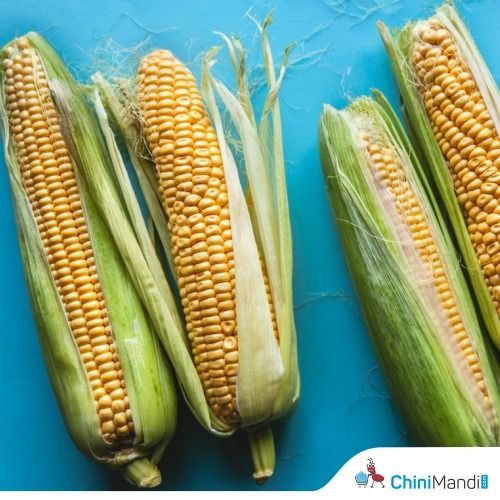Various industry groups in India are raising concerns about the high price of maize. The All India Starch Manufacturers’ Association (AISMA) has also urged the government to address this issue.
In a communication to Santosh Sarangi (Additional Secretary and Director General, DGFT), AISMA urged the Ministry to reduce the import duty on maize to zero per cent immediately.
AISMA stated in its letter, “The starch industry in India comprises approximately 45 manufacturing facilities, collectively consuming around 70 lakh tonnes annually. This sector is crucial in supplying raw materials to the food, pharmaceutical, feed, paper, and chemical industries. Annually, we export approximately 800,000 tonnes of finished products to over 125 countries. Our products are indispensable in the daily lives of people.”
“Over the past year, the starch industry has faced considerable difficulties due to escalating raw material costs and declining prices for final products and byproducts. The price of maize, a primary raw material for starch production, has risen by nearly 25% year-on-year across India. This increase is primarily attributed to the drought in maize-producing states in 2023 and the redirection of maize towards biofuel (Ethanol) production. The government’s promotion of a biofuel policy, mandating a 20 per cent blending by 2025-26, has led to a structural shift in maize supply and demand,” the letter further reads.
Emphasizing the recent importation of non-genetically modified (non-GM) maize under TRQ, AISMA said, “Recently, the Government of India (GOI) allocated a tariff rate quota (TRQ) of 500,000 metric tonnes for the importation of non-genetically modified (nonGM) maize through the National Agricultural Cooperative Marketing Federation of India Ltd (NAFED). However, this import is subject to a 15% duty. Presently, there is an insufficient global supply of non-GM maize. Ukraine is the sole potential supplier of non-GM maize, but due to the off-season, the available quantity is minimal and of substandard quality.”
According to the AISMA, Costing of imported maize at Indian Manufacturing Units is as follows:
With NAFED Scheme: The landed cost of imported maize at manufacturing units is approximately INR 28,000 per metric tonne with 15% Import Duty at an Average Inland Transportation Cost of INR 2500 per Metric Tonne.
Without NAFED Scheme: The landed cost of imported maize at manufacturing units is approximately INR 35,000 per metric tonne with 50°/o Import Duty at an Average Inland Transportation Cost of INR 2500 per Metric Tonne .
At both of these price points, AISMA claims the input raw material cost becomes prohibitively high, rendering the operation of manufacturing facilities economically unviable due to the low prices of finished.
AISMA requested the Ministry to consider the following measures:
1. Reduction of Import Duty: We urge the Ministry to reduce the import duty on maize to 0% with immediate effect. Additionally, we request an increase in the tariff rate quota (TRQ) to 20 lakh metric tonnes. Considering the import process takes at least 2-2.5 months to reach Indian ports, the timing of these imports is crucial.
2. Direct Import for Starch Industries: We request permission for starch industries to import maize directly. This would facilitate smoother operations and increased efficiency. The current import process through NAFED is time-consuming and involves longer lead times.
To read more about the news about the Sugar industry and Ethanol Industry, continue reading Chinimandi.com.












The recent concerns raised by the All India Starch Manufacturers’ Association (AISMA) regarding the soaring maize prices highlight a pressing issue that demands immediate government intervention. The high cost of maize is significantly impacting the starch manufacturing industry, leading to increased production costs and higher prices for consumers. By reducing the import duty on maize to 0%, the government can help alleviate these pressures, ensuring that manufacturers have access to competitively priced raw materials. This move would not only stabilize the production costs and supply chain but also enhance the competitiveness of Indian starch products in the global market. Furthermore, in the context of the government’s ethanol policy, ensuring affordable maize prices is critical as maize is a key feedstock for ethanol production. Ethanol plays a vital role in India’s energy security strategy, environmental sustainability efforts, and economic development plans, particularly in supporting the agricultural sector and generating rural employment. Thus, reducing maize import duties aligns with the broader objectives of fostering industrial growth and energy independence.
The availability of non gm corn in global market is limited. If Indian starch manufacturers want to become globally competitive they should be allowed to import gm corn to compete in the global market.
Increase corn crop to meet the dedemad of starch and Ethano industry Reduce paddy crop at asdiible area .maize can be grown in kharif ,Rabi and summer/ zaid sason I irrigated areas by reducing paddy without effecting rice reqirment o
Likewise wheat area also
Encourage buyack system with agreement with farmers so that corn productoon can go up